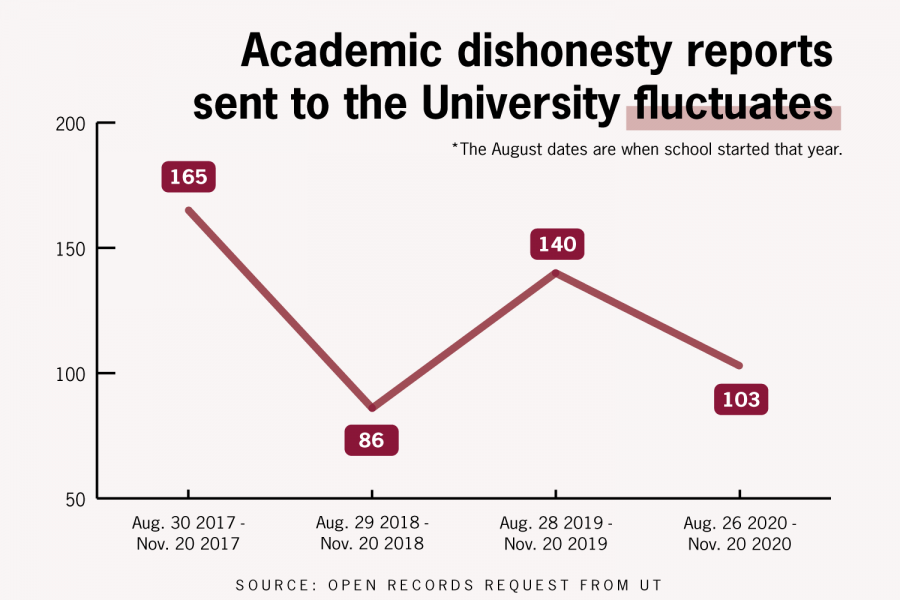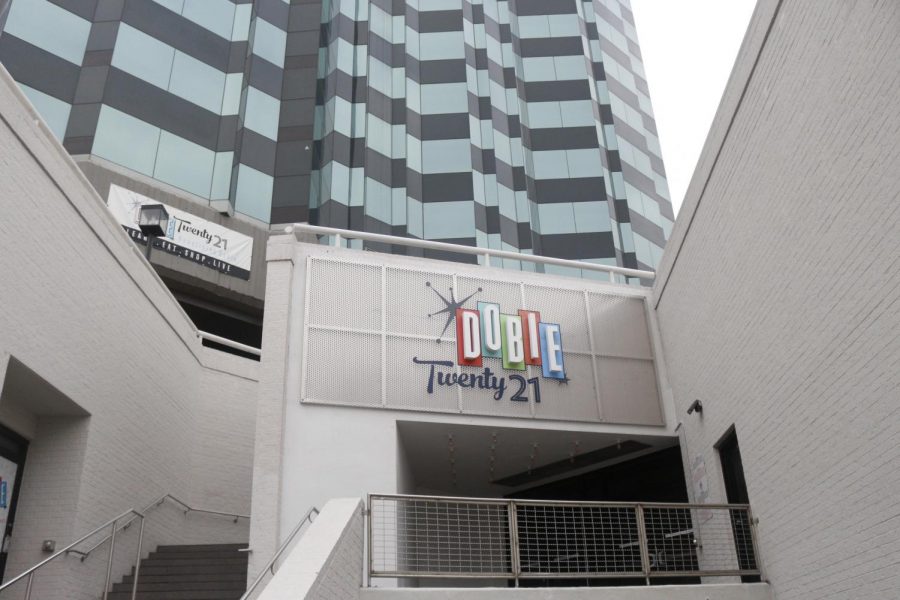Reports of academic dishonesty to the Office of the Dean of Students have decreased by 26.4% compared to the same time period last fall.
This semester, 103 reports of academic dishonesty have been referred to the Office of the Dean of Students from the first day of classes to Nov. 20. At the same time last fall semester, 140 were recorded. In fall 2018, there were 85, and in 2017 there were 165, according to data obtained by The Daily Texan through an open records request.
Robert Leary, assistant director for student conduct and academic integrity in the Office of the Dean of Students, said numbers fluctuate each semester depending on when midterms and finals are scheduled by professors. He said an accurate measurement of cheating rates is best estimated after finals, when most cheating referrals come in. In fall 2019, 305 reports of academic dishonesty were referred to the Office of the Dean of Students during the entire semester. Approximately 47.9% of the reports were filed in December.
Leary said professors have to decide whether to resolve cheating incidents themselves or refer them to the Office of the Dean of Students for resolution, which gives instructors a lot of freedom on disciplinary action.
“The faculty member can just reach out to them and say, ‘I've noticed this academic integrity issue, and this is what I think a fair sanction is,’ which is usually some kind of grade-related thing,” Leary said. “Then if the student agrees to that, it can kind of get resolved that way.”
Leary said the causes for referrals this semester are largely the same as in-person semesters. Professors refer students for violations such as plagiarism detected by software including Turnitin, unauthorized collaborations in text group chats and GroupMe, and dishonest uses of study websites such as Chegg and Quizlet, where students can sometimes access test questions.
French studies junior Sarah Boedecker said it is easier to cheat than in previous in-person semesters if professors do not use proctoring software for tests and assignments.
“(We) are bombarded with so much homework for no good reason that students start to get overstressed and don’t care to learn anymore,” Boedecker said. “I've gotten so discouraged that I went straight to Quizlets to try and see if there's answers, but there aren’t any.”
Christopher Swanson, a student conduct coordinator for the Office of the Dean of Students, said faculty members have reported students for using study aid websites such as Chegg even before the COVID-19 pandemic.
“There's no question we've seen them before,” Swanson said. “What we're seeing that is different in particular are exam questions being posted to those websites.”
Swanson said Chegg will cooperate with the University to investigate any cases of academic dishonesty.
According to Chegg’s honor code policy, misuse of their services can result in deletion of accounts and collaboration with universities to uncover identities of those committing academic dishonesty.
Swanson said actions considered cheating varies from class to class, so students should always double-check with their professor before using websites as a resource.
Editor’s note: This story has been updated with a new infographic.





















